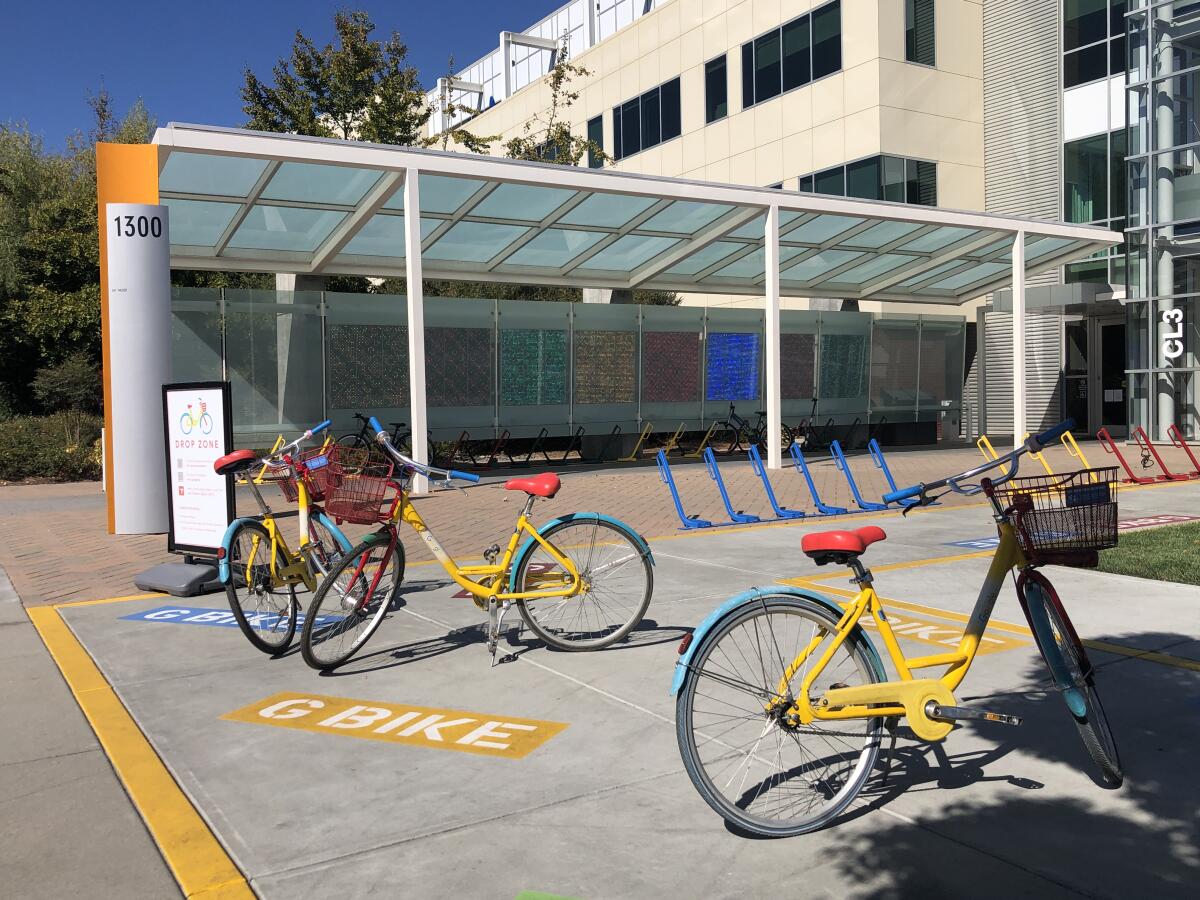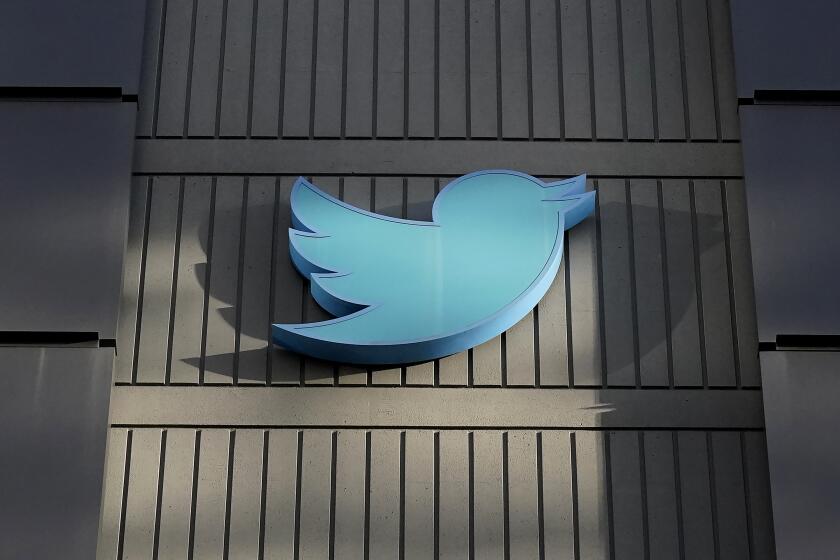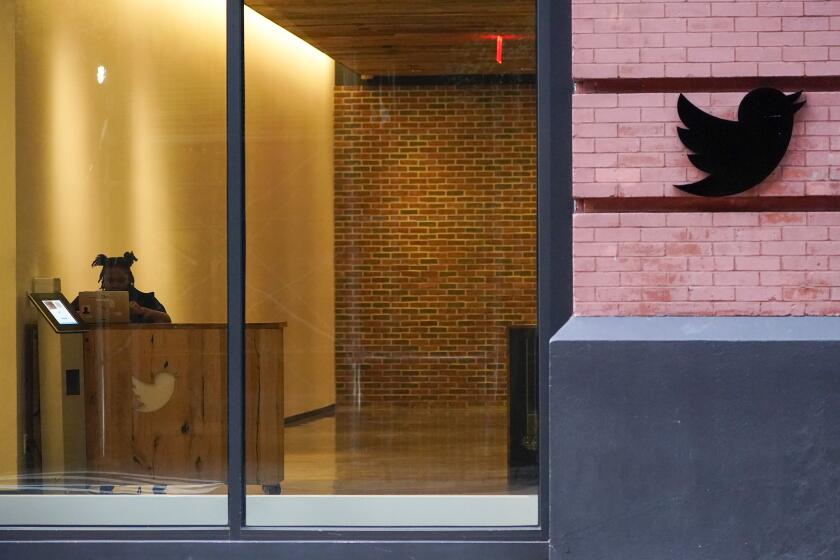Gag order ruling could free up ex-Twitter employees to criticize Elon Musk

- Share via
Shut up and take the money, companies told laid-off employees. Literally.
In the tech industry, which recently has been roiled by waves of layoffs, many companies have dangled in front of workers sometimes generous sums of severance pay. The catch: To get it, often they must sign agreements that include a nondisparagement clause prohibiting them from speaking negatively about the company in public.
On Tuesday, the National Labor Relations Board ruled that including such a broad nondisparagement stipulation as a condition of receiving severance violates employees’ rights under federal law. Although the ruling appears to put some power back into the hands of workers, much remains unclear on how it will be implemented.
The National Labor Relations Act protects employees’ rights to organize, bargain collectively and “engage in other concerted activities for the purpose of collective bargaining or other mutual aid or protection” while prohibiting employers from interfering with these rights. By stifling the speech of laid-off workers with a nondisparagement agreement, employers would be violating their rights under this law, the board decided.
The decision, made in a case involving hospital workers in Mount Clemens, Mich., represents a return to “longstanding precedent” and reverses previous decisions from 2020 in cases involving Baylor University Medical Center and gambling company International Game Technology that found it was not unlawful to offer these kinds of severance agreements.
The issue of severance pay has been the subject of intense discussion in recent months among thousands of ex-Twitter employees after Tesla billionaire Elon Musk took over the company last October and slashed nearly half its workforce.
Twitter workers fired in mass lay-offs finally got severance offers — and they’re far worse than initially promised. Many are ready for legal action.
When workers received their severance packages months later, they came with some major strings attached: To get the money, they had to sign away their right to ever sue the company, assist anyone in a legal case against the company unless required by law, or speak negatively about Twitter, its management or Musk.
Lisa Bloom, a labor lawyer representing a few hundred ex-Twitter workers in arbitration claims against their former employer, said this was a prime example of the kind of gag order the NLRB was trying to address with its decision.
“If you can’t criticize your employer, if you can’t talk about terms that you’re offered, if you can’t help each other with claims, that clearly violates Section 7” of the federal labor law, Bloom said.
However, other experts urged former workers to exercise caution before placing too much weight on the board’s recent decision.
Shannon Liss-Riordan, whose firm has filed more than 1,300 arbitration claims against Twitter and represents nearly half of the company’s laid-off workers, said the issue was “far from settled” and advises ex-employees not to sign a severance agreement if they plan on pursuing any legal claim against Twitter.
Twitter must advise fired workers of a class-action lawsuit before asking them to sign a waiver saying they will not sue the company, a judge says.
“While I do think Twitter’s severance agreement is problematic given the NLRB decision … there are still legal obstacles in the way,” Liss-Riordan said. “Because this is a board ruling and not a court ruling as of yet. So I expect there will be further litigation about this.”
The courts have not always aligned with NLRB decisions in the past. In 2018, the Supreme Court ruled in a case involving Wisconsin healthcare software company Epic Systems that upheld the validity of mandatory arbitration agreements even though the NLRB decided in 2012 they violated workers’ rights under federal labor law.
“It is possible that the courts will adopt this ruling from the board,” Liss-Riordan said. “But to test it out, someone would need to put themselves at risk that the company will come after them and the court may or may not adopt the board decision.”
In addition to arbitration claims, Liss-Riordan also represents ex-Twitter employees in NLRB complaints. This could be one avenue through which workers who already signed severance agreements could challenge the terms they agreed to, using the board’s new ruling, without going through the court system, Liss-Riordan said.
Twitter is not the only major company potentially affected by Tuesday’s ruling. Meta Platforms, Facebook’s parent company, also included a nondisparagement clause in its severance packages for the more than 11,000 workers it laid off at the end of last year, according to Business Insider. A worker laid off from Google parent company Alphabet reported seeing non-disparagement in her agreement as well.
Any previously signed nondisparagement agreements that interfere with workers’ rights probably would become unenforceable under the NLRB decision. However, the ruling doesn’t necessarily mean that companies will immediately begin removing them from future severance packages.
Catherine Fisk, a UC Berkeley labor law professor, said the NLRB’s decision applied only to “over broad” nondisparagement stipulations that would infringe on employees’ rights.
Companies could potentially include a caveat by asking employees not to make disparaging remarks except to the extent that state or federal law allows.
“And if they don’t want to include the caveat, maybe it’s because they’re actually trying to use termination or severance as a way to force employees to relinquish statutory rights, and that raises some issues,” Fisk said.
Times staff writer Brian Contreras contributed to this report.
More to Read
Inside the business of entertainment
The Wide Shot brings you news, analysis and insights on everything from streaming wars to production — and what it all means for the future.
You may occasionally receive promotional content from the Los Angeles Times.













